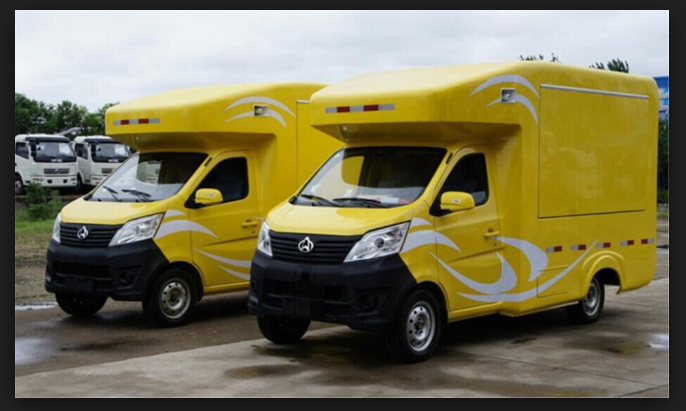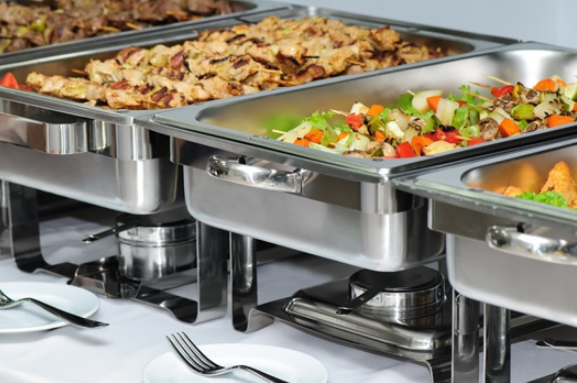Here are 8 Practical tips to successfully become a popular mobile food vendor in Nigeria

As a Mobile Food Vendor , you can sell food and snacks from one location to the next. Whether you use a cart, trailer or vehicle, there are necessary steps you need to follow if you want to become a successful Mobile Food Vendor in Nigeria
The ideal way to become successful mobile food vendor in Nigeria is finding your own brand and becoming the top expert. Make a research to find out what is already covered in your area, and then come up with your own creation Mobile food vending is a key entry point for many food business entrepreneurs who want to enter the food industry or expand their current operations. As a lucrative business, it requires a strategic planning to start
For example, some food truck vendors find success in combining costumes and enticing language to enhance their image.
However, starting a mobile food operation comes with its own unique requirements and regulations. The step below will help you navigate through the different ways to enable you grow your mobile food business.

1. Start-up financial cost
many factors are involved to help us determine start-up costs for a food vending business in Nigeria. There are also one-time costs, as opposed to recurring start-up costs, and costs that can change based on the location. this includes purchasing a food truck, register point-of-sale (POS) system, truck wrap, office supplies, marketing/advert, public relationship, and other professional, legal or consulting fees. While that list is not comprehensive, it is a glance, giving potential food truck owners an idea of what to do.
2. Prepare a Menu as a Mobile Food Vendor

As a Mobile Food Vendor in Nigeria if your menu for your festival food concession is well prepared. The more food you are able to sell out, the more money you will be able to make, so it is very imperative to plan a menu based on items that you can serve to your customers quickly, with a minimum of fuss. Choose items that use a minimal number of ingredients and can be prepared and served in just a few minutes of time. Use ideal ingredients that can be incorporated into multiple menu items, such as refried beans that can be part of tacos as well as burritos. Offer drinks and dessert as well as savory offerings.
3. Acquire all the Business Legal Requirements
You have probably noticed that most How-To guides on this subject place sorting out the legal requirements at the bottom of their To-Do list.
And that is why: the permits and licensing requirements for food cart businesses vary from country to country, state to state, and even city to city, so making a definitive list with everything you need is close to impossible. At this point, you are going to address issues such as:
- The street food vending regulations in your city
- certified Licenses and permission required
- The kind of food you will be selling and how they will be handled, stored, thawed, and cooked
- Commissary requirements (the requirement to operate from a licensed commercial kitchen)
- The size, quantity, and quality, material and the equipment of your street food vehicle
- The vehicle’s fresh water and waste water management holding capacity
- Safe food handling course requirement
- proper Hygiene policies
- Pre-approval inspection of the equipment
4. Making good use of the social media
We are in the technology age,so as a Mobile Food Vendor in Nigeria, you should not be left out. The power of digital marketing is so great, to say the least. Twitter, Instagram, Google, and Facebook are currently the hottest social media platforms for mobile food entrepreneurs to stay in constant touch with their customers. Marketing and creating awareness for your mobile food business requires a great deal of social media presence. Twitter, in particular, has become the favorite of mobile food vendors. You can go to twitter and set up an account under your business name. Twitter is totally all about engaging your followers. You can also build and set up a website for your business
5. Recruit your Staff
The real reason why you will need to hire staff is that if you can’t afford to buy a vehicle to deliver food to your customers from the beginning of this business, you can hire cab drivers, tri cycle riders, or power bike riders to help you in delivering food to your customers, also when you start growing you will need more hands in the kitchen and in the delivery process. Note also, for you to get the best services from your staff, make sure you don’t owe them salaries or wages because if you do you won’t get the effectiveness and efficiency you want from them and this will definitely affect your business badly. Pay your staff salary/wages promptly.
6. Maintain Good customer Relationship
Good customer care service plays a great role in the success of your business. It is advisable to play this role yourself, but if you must get another to help you do it then the person you are hiring must be polite,smart,passionate and respectful.
7. Expansion
If indeed your intention of starting a home and office food delivery company is to grow the business beyond the city where you are going to be operating from to become a national and international brand by going into franchising, then you must be ready to spend money on promotion and advertisement of your brand.
No matter the industry you belong to, the truth is that the market is dynamic and requires consistency, brand awareness and brand boosting come promotion to continue to appeal to your targeted market. If you discover that your business has grown to a certain level, you can decide to set up another location where targeted demand is many and flowing.
8. Maintenance
Maintain and keep your surrounding in good condition; otherwise, you might run the risk of having your licenses revoked. Do a daily inspection and checkup, making sure to clean the floors, appliances and surfaces with soap and disinfectant solution. You must keep all associated fixtures, fittings and equipment clean and in proper working order. There should be no form of fumes, smoke or foul odors. No waste water or garbage should go beyond a day, and they should be disposed of without threat to the environment.






